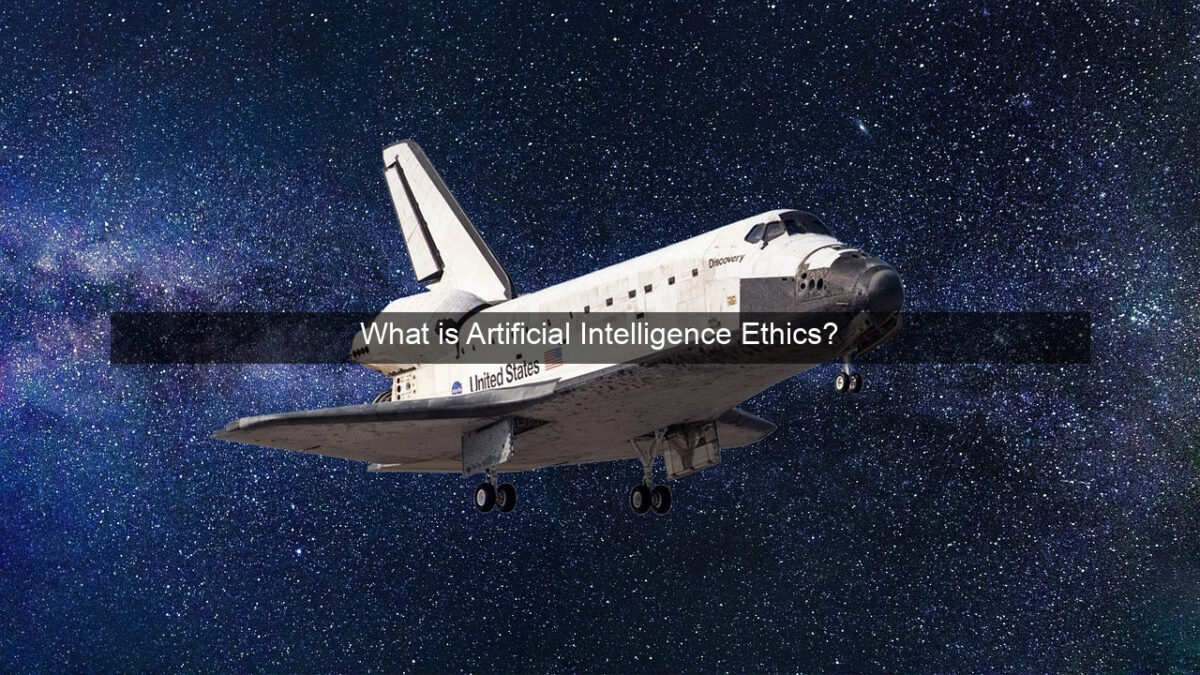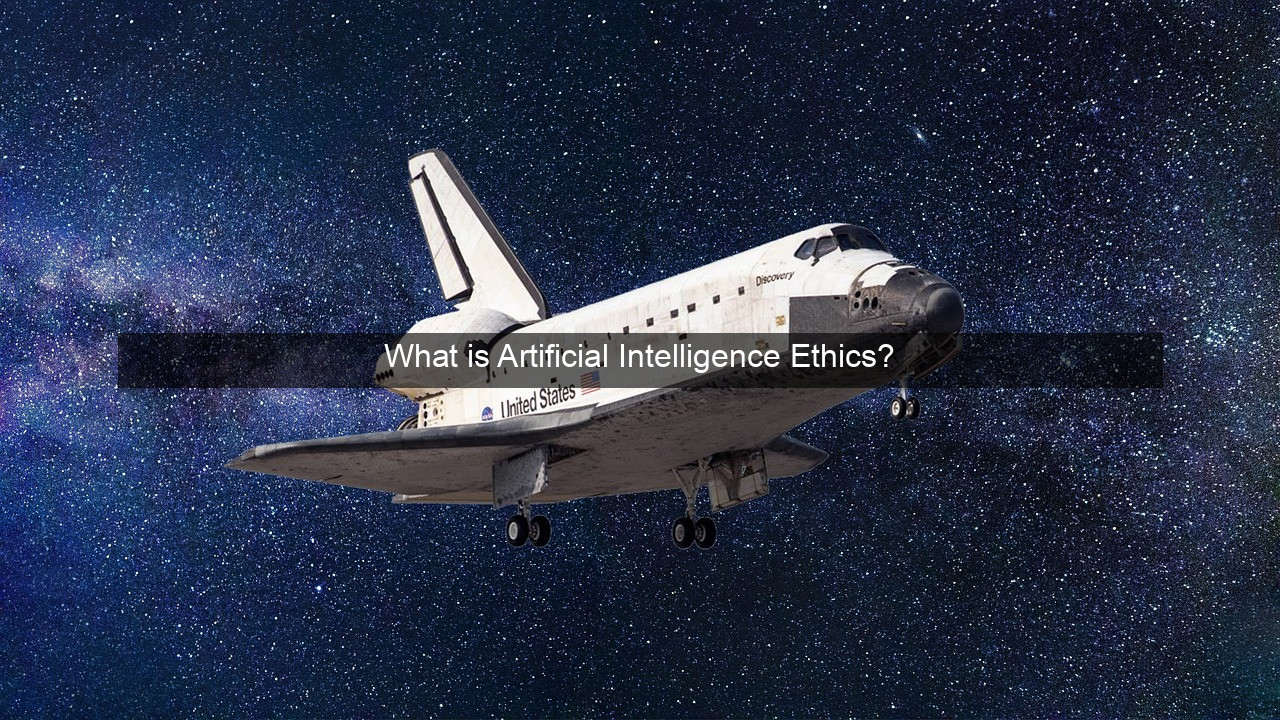What is Artificial Intelligence Ethics?

- What is Artificial Intelligence Ethics?
- What is Artificial Intelligence Ethics?
- The Core Principles of AI Ethics
- Bias and Fairness
- Accountability and Transparency
- Privacy and Security
- Navigating the Ethical Landscape of AI
- Developing Ethical Frameworks
- Promoting Ethical AI Education
- Fostering International Collaboration
- Conclusion

What is Artificial Intelligence Ethics?
The rise of artificial intelligence (AI) is transforming our world at an unprecedented pace. From self-driving cars to sophisticated algorithms shaping our online experiences, AI is rapidly becoming integrated into the fabric of our lives. This integration brings immense potential for progress, offering solutions to complex problems in fields like healthcare, education, and environmental sustainability. However, this powerful technology also presents significant ethical challenges that demand careful consideration. As AI systems become more complex and autonomous, questions arise about their impact on human values, rights, and societal well-being. Understanding and addressing these ethical concerns is crucial to ensuring that AI benefits humanity as a whole, rather than exacerbating existing inequalities or creating new forms of harm. Artificial intelligence ethics, therefore, is not merely an academic exercise but a vital field of inquiry with real-world implications for the future of our species.

The Core Principles of AI Ethics
Bias and Fairness
AI systems learn from vast datasets, and if these datasets reflect existing societal biases, the AI will inevitably perpetuate and even amplify them. This can lead to discriminatory outcomes in areas like loan applications, hiring processes, and even criminal justice. Addressing bias requires careful data curation, algorithmic transparency, and ongoing monitoring of AI systems for fairness.
Ensuring fairness in AI is a complex challenge that demands a multi-faceted approach. It requires not only technical solutions but also a deep understanding of the social context in which AI systems operate. This includes recognizing historical injustices and power imbalances that can be exacerbated by biased algorithms.
Moreover, defining fairness itself can be subjective and context-dependent. What constitutes a fair outcome in one situation may not be considered fair in another. Therefore, ongoing dialogue and collaboration between ethicists, policymakers, and technologists are essential to navigate these complexities and develop AI systems that promote equity and justice.
Accountability and Transparency
As AI systems become more sophisticated, it can be difficult to understand how they arrive at their decisions. This lack of transparency can create problems when AI is used in high-stakes situations, such as medical diagnosis or legal proceedings. Establishing clear lines of accountability is crucial to ensure that individuals and organizations are responsible for the actions of their AI systems.
Transparency in AI is essential for building trust and fostering public acceptance of this technology. When people understand how AI systems work, they are more likely to feel comfortable using them and less likely to fear their potential consequences.
Furthermore, transparency enables scrutiny and oversight, which are essential for identifying and mitigating potential harms. This includes providing mechanisms for individuals to challenge AI-driven decisions that affect them and ensuring that there are avenues for redress when things go wrong.
Privacy and Security
AI systems often rely on vast amounts of personal data, raising concerns about privacy and security. Protecting sensitive information is paramount, and robust safeguards must be in place to prevent data breaches and misuse. This includes implementing strong data encryption, access controls, and anonymization techniques.
The collection and use of personal data for AI development must be guided by ethical principles and comply with relevant regulations. Individuals should have control over their data and be informed about how it is being used. They should also have the right to opt out of data collection and request the deletion of their personal information.
Furthermore, AI systems themselves can be vulnerable to attacks and manipulation. Ensuring the security of AI systems is crucial to prevent malicious actors from exploiting them for their own gain or causing harm to others. This requires ongoing research and development in AI security and the implementation of robust security protocols.
Navigating the Ethical Landscape of AI
Developing Ethical Frameworks
Creating comprehensive ethical frameworks for AI development and deployment is a crucial step in navigating the complex ethical landscape. These frameworks should provide guidance for developers, policymakers, and businesses on how to build and use AI responsibly.
Ethical frameworks should address key issues such as bias, fairness, transparency, accountability, privacy, and security. They should also consider the potential impact of AI on human rights, employment, and societal well-being.
Developing these frameworks requires a collaborative effort involving ethicists, technologists, legal experts, policymakers, and representatives from civil society. This multi-stakeholder approach is essential to ensure that the frameworks are comprehensive, inclusive, and reflect a broad range of perspectives.
Promoting Ethical AI Education
Educating the public about AI ethics is essential to fostering informed discussions and promoting responsible use of this technology. This includes raising awareness about the potential benefits and risks of AI and equipping individuals with the knowledge and skills to navigate the ethical dilemmas that may arise.
Ethical AI education should be integrated into various educational settings, from primary schools to universities. It should also be made accessible to the wider public through online courses, workshops, and public forums.
Furthermore, it is important to train AI developers and practitioners in ethical principles and best practices. This will help ensure that they are equipped to build and deploy AI systems that are aligned with ethical values and societal needs.
Fostering International Collaboration
AI ethics is a global issue that requires international cooperation. Different countries and cultures may have varying perspectives on ethical values and priorities. Therefore, fostering dialogue and collaboration between nations is essential to developing shared ethical principles and standards for AI.
International collaboration can take many forms, including the development of international treaties and agreements, the sharing of best practices and research findings, and the establishment of global forums for discussing AI ethics.
Working together across borders is crucial to ensuring that AI benefits all of humanity and that its potential risks are mitigated effectively.
| Ethical Principle | Description |
|---|---|
| Fairness | AI systems should be free from bias and treat all individuals equitably. |
| Transparency | The decision-making processes of AI systems should be understandable and explainable. |
| Accountability | Clear lines of responsibility should be established for the actions of AI systems. |
- Bias Mitigation
- Data Privacy
- Algorithmic Transparency
Conclusion
Artificial intelligence ethics is not simply a theoretical concern; it is a practical necessity for navigating the transformative impact of AI on our world. By proactively addressing the ethical challenges posed by AI, we can harness its immense potential for good while mitigating the risks of harm. This requires a collaborative effort involving researchers, developers, policymakers, and the public to ensure that AI systems are developed and used responsibly, ethically, and for the benefit of all humanity.
What are the main ethical concerns surrounding AI?
The main ethical concerns surrounding AI include bias and fairness, accountability and transparency, privacy and security, job displacement, and the potential for misuse.
Why is AI ethics important?
AI ethics is important because it ensures that AI systems are developed and used responsibly, minimizing harm and maximizing benefit for individuals and society as a whole.
How can we promote ethical AI development?
We can promote ethical AI development by establishing clear ethical guidelines, promoting transparency and accountability, addressing bias, protecting privacy, and fostering public education and engagement.
What is the role of bias in AI ethics?
Bias in AI can lead to discriminatory outcomes and perpetuate existing inequalities. Addressing bias is a crucial aspect of ensuring fairness and equity in AI systems.
How can we ensure transparency in AI?
Transparency in AI can be achieved through explainable AI (XAI) techniques, which make the decision-making processes of AI systems more understandable to humans.
What are the implications of AI for privacy?
AI systems often rely on vast amounts of data, raising concerns about the collection, use, and protection of personal information. Safeguarding privacy is a key ethical consideration



